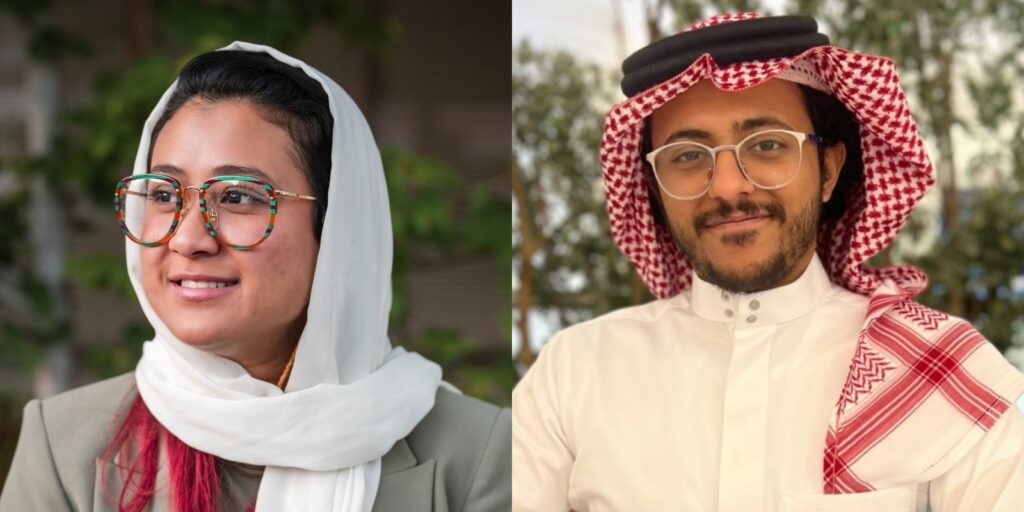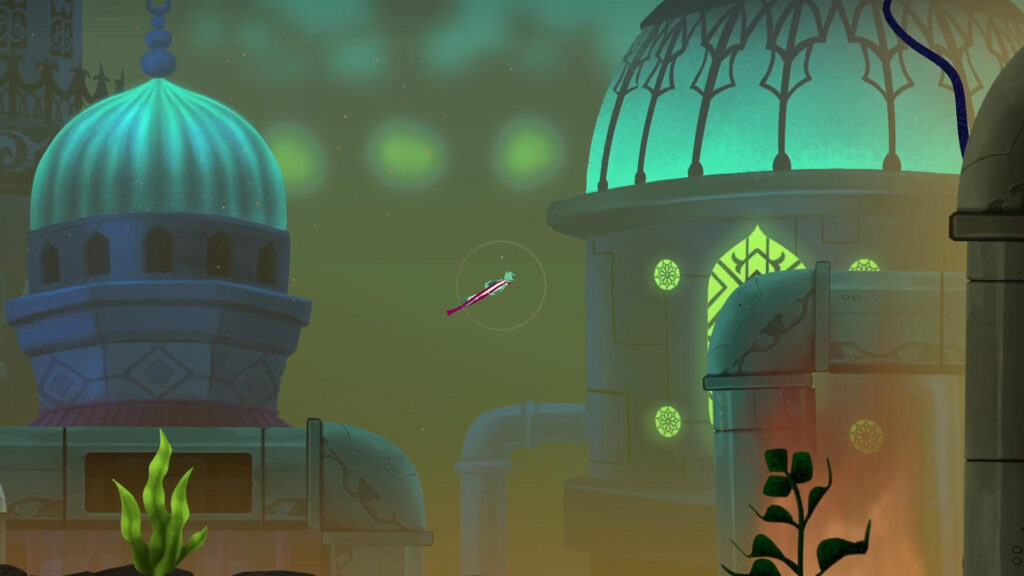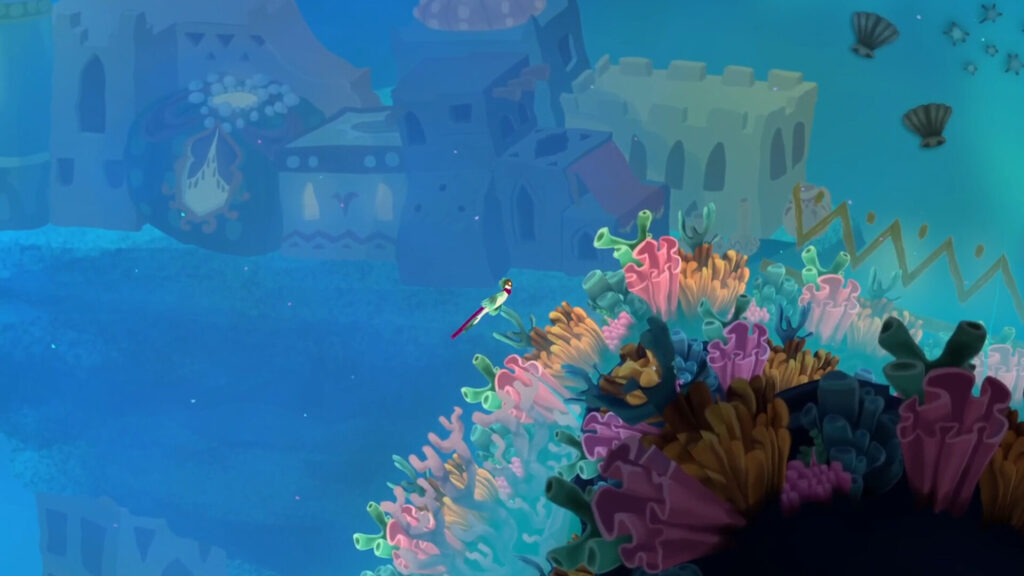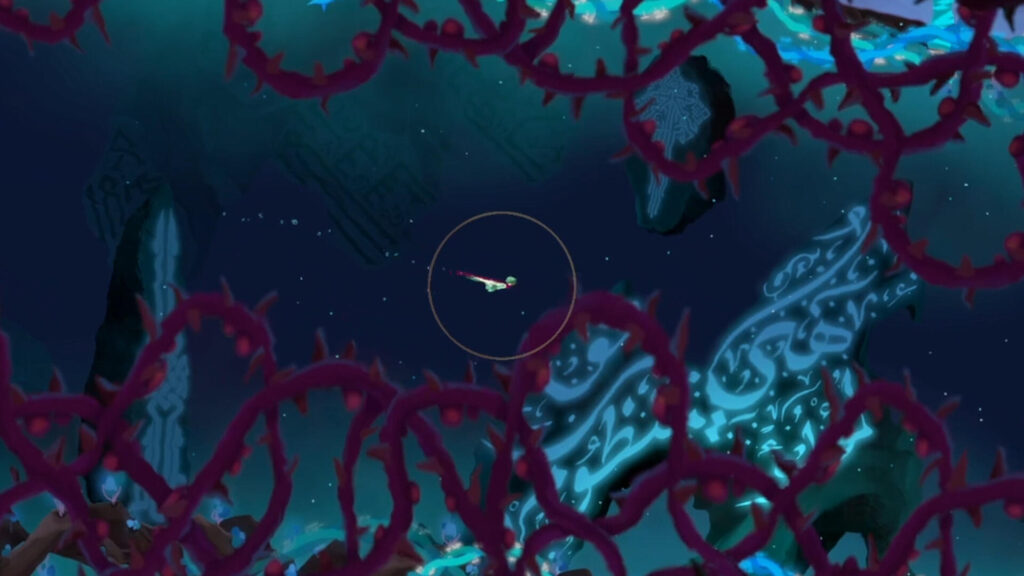Starvania Studio was founded in 2022 during a time of rapid expansion in Saudi Arabia’s games industry. With increasing government support and a growing ecosystem, Starvania has quickly established itself within this emerging sector in the region. The studio, co-founded by Meaad Aflah and Muslih Alzahrani, has since grown into a multinational team of twelve developers from several countries.
Their first commercial game, Bahamut and the Waqwaq Tree, is set to showcase the studio’s creative vision and contribute to the thriving regional games industry. “We’re super excited about the release of our game, and we can’t wait for everyone to see it,” says Aflah. The game has already been turning heads with a nomination for Best Saudi Indie Game and a win in the Graphics Galore category at the Devcom 2024 Indie Awards.
The game’s development journey began when Aflah and Alzahrani met in the Game Changers apprenticeship program in Saudi Arabia. “During the program, we worked on multiple projects and discovered that we shared the same vision and beliefs, which naturally led to forming our studio,” Aflah recalls. Initially a small team of core members from the program, Starvania has grown into a multinational force. Despite the geographic distance between members from Saudi Arabia, France, Germany, Morocco, Pakistan, Palestine, and the UK, the team is united in their vision for the game.
Rich storytelling
At its heart, Bahamut and the Waqwaq Tree is an underwater adventure rooted in Arabian themes. “The idea started as a small vision focused on creating a fun underwater universe featuring Arabian creatures,” Creative Director Muslih Alzahrani explains. “This gradually developed into the game it is today; an underwater adventure inspired by Arabian themes, incorporating calligraphy and drawing to solve puzzles and restore balance to the seas.”

One of the game’s most unique aspects is its deep integration of Arabian culture, particularly in its visual and narrative design. “You’ll see elements like buildings, walls, and characters that reflect this unique style, plus a humorous twist, such as a sea turtle with camel features!” Alzahrani laughs. Bahamut and the Waqwaq Tree not only showcases the beauty of Arabic architecture and art but also pays homage to the rich storytelling traditions of One Thousand and One Nights. Even the game’s soundtrack is infused with regional influences, blending traditional instruments like the oud with modern gaming soundscapes to create an immersive experience.
Boxes and circels
While the cultural inspiration is key to Bahamut and the Waqwaq Tree, Muslih Alzahrani is particularly pleased with the game’s core mechanics. “The swimming mechanics are what I’m most proud of,” he says. “From the early days of development, when the game was just boxes and circles, I knew that the feeling of swimming would be something truly special and set the game apart.” Creating an underwater world that feels alive and responsive required meticulous design and iteration.

The development of the game has been an intricate process, particularly when it comes to the art direction. “We wanted to capture the duality between light and darkness while maintaining a relaxing and chill atmosphere,” Alzahrani explains. The team drew inspiration from historical Arabian texts, ancient calligraphy, and architectural designs. “It took quite some time, but the result is a unique blend that we’re proud of.”
Managing a multinational team
Operating across different time zones, Starvania Studio relies on a highly organized workflow to keep production on track. Meaad Aflah shares that they have daily stand-up meetings and weekly planning sessions to ensure the team is aligned with their two-week sprint cycles. This collaborative approach has allowed the team to grow from four members to thirteen, all while maintaining creative cohesion. “One of the toughest challenges was establishing a stable pipeline and setting a clear direction for the game,” she admits. But through collective effort, the team found ways to streamline their process and maintain focus.

Financing an indie game in Saudi Arabia comes with its own set of challenges, but the team at Starvania was able to secure funding through various accelerator and incubator programs. Aflah credits the NEOM Level Up program with providing the critical financial support needed to complete the game. “We participated in multiple accelerators and incubators that provided financial support and mentorship,” she explains. “This investment allowed us to expand our team and supported us throughout the development cycle of Bahamut and the Waqwaq Tree.”
Enjoy the process
As the game nears completion, Aflah reflects on the lessons learned during its development. “The biggest lesson is that making a game is one of the hardest yet most rewarding journeys,” she says. For her, it’s not just about the final product, but about the relationships formed and the creative processes that unfolded along the way. “Take it easy, embrace what you’re creating, meet new people, and enjoy the process,” she advises other indie developers.

Although the exact release date for Bahamut and the Waqwaq Tree has yet to be finalized, Aflah confirms they are targeting the first quarter of 2025.

